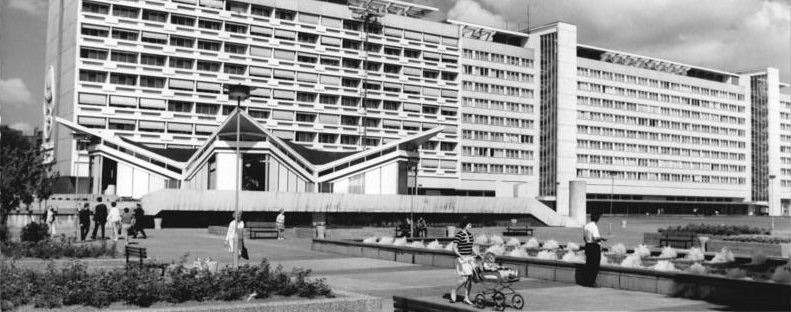BTU coordinates international research network on the architectural heritage of high modernism
With Priority Program 2255 "Cultural Heritage Construction", the DFG is funding a research network coordinated from Cottbus, in which the competencies of the disciplines are bundled across disciplines and locations. The goal is to develop a new type of engineering-based and networked heritage management that can do justice to the complex realities of ultra-modern heritage. "If you want to shape the future, you have to know what foundations you are standing on - and be able to maintain them appropriately," sums up Prof. Lorenz.
The Cottbus city promenade was once an important ensemble of late high modernist GDR urban development. Its centerpiece was the "Kosmos" mocha-milk ice cream bar built in 1969, in whose star-shaped curved shell roof architecture and engineering merged into a powerful unity. "A good ten years ago, the structure was demolished because its value had not been recognized. It shares this fate with numerous important buildings from the era of high modernism, which lasted from about 1880 to 1970. Many are demolished or disfigured beyond recognition by modernization. Every day, evidence of an entire era of architecture and building technology is irretrievably lost," regrets the coordinator of the priority program, Prof. Dr. Werner Lorenz.
It is not uncommon for the novel building materials, the load-bearing structure or the manufacturing process in these ultra-modern buildings to determine the value of the monument: the construction becomes the actual cultural heritage. However, strategies and methods for its evaluation and preservation have only been rudimentarily developed so far. There is a lack of decisive foundations in the history of building technology, monument theory and engineering science. "Up to now, historical sciences, monument preservation and civil engineering have acted largely independently of and even against each other. Cooperative potentials are hardly used," explains Lorenz, a civil engineer and historian of construction technology.

